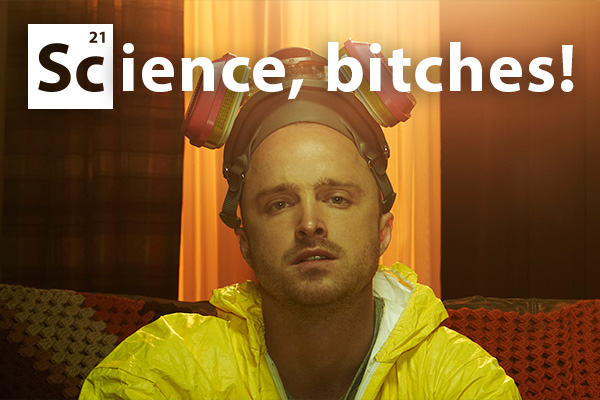Science, Bitches! | Issue 24
100% Natural, Chemical-Free Nonsense
This derision is mostly deserved; if they’re going to ruin some good chat with superior-yet-irrelevant knowledge of grammar/ semantics/ botany, too right they should be shunned. There are some distinctions, however, that cannot be ignored and that pedants are right to highlight. Nothing quite irritates us science kids, for instance, like misuse of the word “natural.”
While strawberries are naturally delicious and the use of the word “natural” is itself only natural, its use as a synonym for “good” is synthetic. Put simply, the “appeal to nature” argument assumes that natural things are good and unnatural things are bad. This seems intuitive – there is no doubt that the synthetic highs of Kronic and K2 are much more toxic than natural cannabis. However, it is hard to disagree with the proposition that while aloe vera and spinach are wonderful natural products, smallpox and Japanese Giant Hornets are not. This is a slightly crude deconstruction of the “appeal to nature” fallacy, but it does serve to demonstrate its silliness.
Of course, this is not to say that all artificial products are necessarily superior to their natural counterparts. If you can remedy your vitamin deficiency though dietary changes rather than with supplements, go for it – it’s likely better both for your health and for your wallet. We must also respect the role of nature in providing the bases of many pharmaceuticals – just look at the origins of aspirin, penicillin, and the anti-cancer drug paclitaxel. Science appreciates the advantages of these natural products, and simply improves their production and efficacy through synthetic means. Thanks, chemistry! Without scientific advances, you’d still be getting precious penicillin extracted from the pee of the last person who used it …
When you’re out in the wilderness and nature calls, it helps to know what kind of nature to look for. Wipe with poison oak, and you’re in for a bad time. This specific example may not be of much help in the New Zealand outdoors, but the message remains pertinent nonetheless.
Not everyone is thankful for chemistry, though. Second only to “natural” is the word “chemicals” in the list of science-pedant gripes. Chemophobia – the fear of “chemicals” – goes hand-in-hand with the “appeal to nature.” I once saw an advertisement for amazing organic beer that contained “no chemicals.” How amazing – and impossible. Everything is made up of “chemicals.” A bottle of beer containing no chemicals is an empty bottle.
Many people panicked when they found out that a famous shampoo contained the known carcinogen formaldehyde. This sounds, on the face of it, like a rational response. What was largely ignored, however, was the fact that the formaldehyde was not present in large enough concentrations (or in the correct form) to be toxic. Indeed, formaldehyde can been found in trace concentrations in apples! And let’s not forget that lethal poison dihydrogen monoxide (or, in other words, H2O, your average glass of water).
Of course it’s sensible to be sceptical when it comes to what you put in your body, but don’t be fooled by overly simplistic ideas. “Natural” does not always mean good for you (although this isn’t an excuse to forget about your 5+ a day!). A little rational inquiry makes for great science, bitches.



